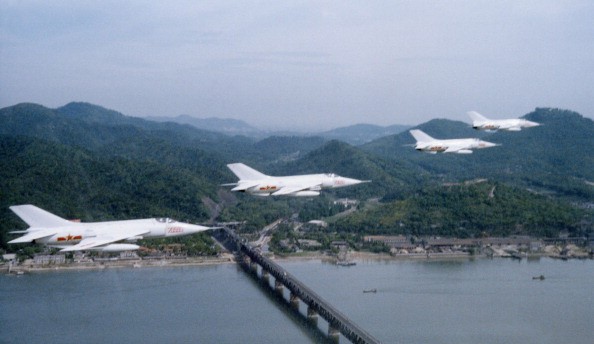According to Taiwan's Defense Ministry, a fleet of 24 Chinese aircraft, including 18 fighter jets and two nuclear-capable bombers, breached the island's air defense identification zone (ADIZ) on Thursday.

China Violated Taiwan's Air Defense Identification Zone (ADIZ)
In a recently published article in Newsweek, according to publicly accessible statistics provided by Taiwan's Ministry of National Defense, the newest intrusions by People's Liberation Army aircraft increased the total number of warplane flights this year to 502. According to the country's military authorities, approximately 380 ADIZ breaches occurred in 2020.
ADIZs are self-declared airspace restrictions that extend beyond a country's borders into international airspace. The zones, which have also been established by neighboring China, Japan, and South Korea, are used to seek early identification of foreign civil and military aircraft. However, international law does not govern the activity.
Furthermore, in separate reports recording action on Thursday morning and afternoon local time in the Bashi Channel, near the entrance of the South China Sea, Taiwan's air force assigned combat air patrols, issued radio warnings, and deployed air defense missile systems, according to the ministry in a published article in MSN News.
China Claims Taiwan's Territory
China claims Taiwan as part of its territory and has promised to "unify" it, if necessary via force. Military authorities in the United States have warned that a Chinese invasion of the democratic island may happen this decade or is far closer than most people think, according to a report published in BBC News.
On the other hand, analysts in Taipei believe Beijing regularly uses its military to convey political signals, sending aircraft and warships to indicate Beijing's opposition to diplomatic developments involving Taiwan. When Taiwanese authorities attempt to gather international support, and when allies like the US openly support Taipei's efforts, a pattern of military coercion develops.
Comprehensive and Progressive Agreement for Trans-Pacific Partnership
Officials in Taipei conducted a news briefing on Wednesday, only days after Beijing filed its CPTPP application, to announce that Taiwan has sought formal membership to the Comprehensive and Progressive Agreement for Trans-Pacific Partnership.
The economic agreement may have geopolitical implications for both Taiwan and China. For the former, it is an opportunity to decrease its reliance on the mainland Chinese market even further. Meanwhile, the latter may perceive an opportunity to suffocate such an endeavor while expanding its own economic clout.
In a published article in Daily Advent, Taiwan's top trade negotiator, John Deng, told reporters on Thursday that Taiwanese President Tsai Ing-wen's government has been working on CPTPP membership for many years. He claims that her administration has already completed all of the required legal and regulatory arrangements.
Taiwan's Application is Not Linked To China's Submission Last Week
China expressed its objection to Taiwan's participation on Thursday, putting Taipei in a difficult position. Deng told reporters that the date of Taiwan's proposal was unrelated to Beijing's submission last week. He believes China would have had its own concerns.
Deng acknowledged that the application procedure might pose diplomatic difficulties, but he said that China has long blocked Taiwan's international space, as everyone can see. Taiwan's application will, of course, be jeopardized if China enters first.
Related Article : US Warns China Its Obligation To Defend Philippines Taiwan
© 2026 HNGN, All rights reserved. Do not reproduce without permission.








